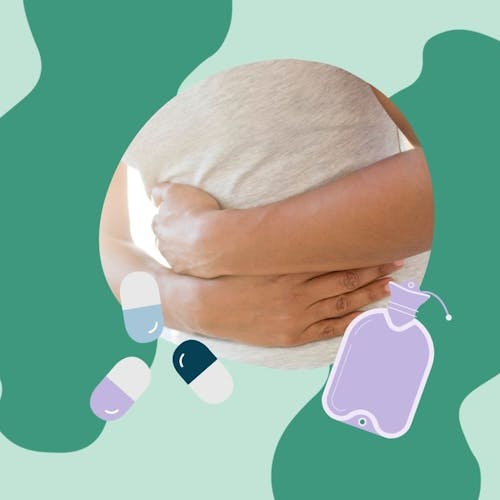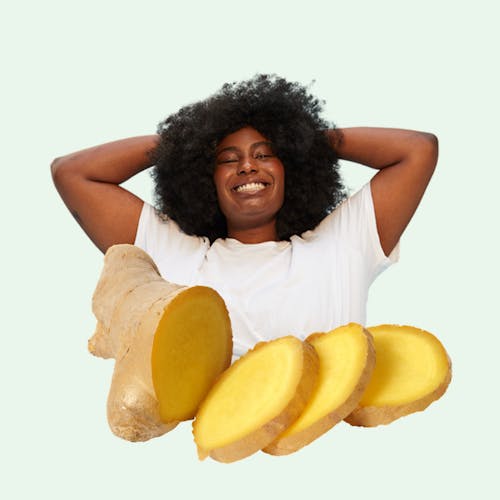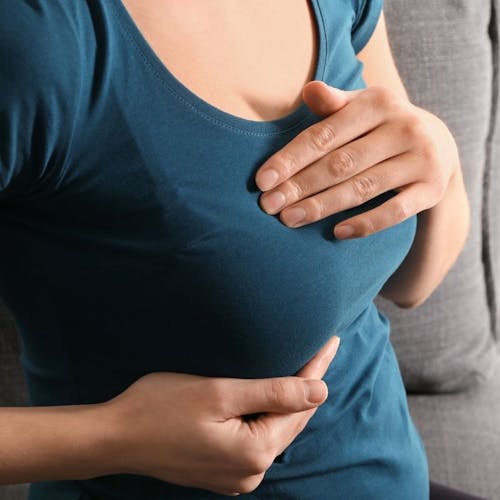This website uses cookies to enhance the user experience. By using Yoppie you are agreeing to our use of cookies.
Why Am I Getting Cramps AFTER My Period?
Written by Yoppie
01 Oct 2021
What actually are cramps?
Why am I cramping after my period? Isn’t this supposed to happen during?
Could it be something else?
Should I see a doctor?
How can I reduce cramps?
Monthly cramps before, during and after your period?! The gift that keeps on giving! But why? We’re taking a closer look at how this happens, why it might be happening to you, and how to handle cramps throughout the month. But first...
What actually are cramps?
If you’re lucky enough to not get cramps, then it’s normal to wonder what the heck they are. Pain in the abdomen due to a period is often described as cramping, but some simply refer to it as ‘pain’, and this feels like anything from intense spasms, to a throbbing sensation from around 1-3 days before your period, hitting its worst point around 24 hours after. Cramps should disappear entirely around 2-3 days after.
Cramps happen as a result of certain hormones and prostaglandins triggering the uterus to contract and shed its lining, causing you to bleed each month. Those with higher levels of prostaglandins may experience more severe cramping.
Why am I cramping after my period? Isn’t this supposed to happen during?
Most people only experience cramps before or during their period, but they are occasionally felt after. If you are still feeling cramps when you have stopped bleeding, this is likely leftover uterus contractions from your period, but it could be due to other reasons, like:
Ovulation - Sometimes cramps are felt during ovulation in the middle of your cycle, when an egg is released from the ovary. These cramps are called ‘Mittelschmerz’, which is German for ‘middle pain’. Appropriate! Most people don’t feel ovulation happening, while others feel it on one side of the body, lasting between a few minutes and a few days.
Implantation - Many people don’t feel implantation happening, but others experience light cramps and bleeding. Implantation is when a fertilised egg attaches in the uterus around 7-14 days after conception. If you suspect this could be what you are feeling, take a pregnancy test to confirm.
Could it be something else?
If you’re feeling cramps for days after your period, or further into the month, this could be due to an underlying health concern. Here are a few of the conditions that could be to blame:
- Ectopic pregnancy is when a fertilised egg attaches outside the uterus. In some cases this can lead to a ruptured fallopian tube, which is an emergency. You should seek immediate medical care if you feel severe pain in the early stages of pregnancy so you can be treated with medication or surgery.
- Endometriosis happens when the uterine lining grows on the outside, causing painful cramps before, during and after your period. This can happen during or after sex, or when going to the bathroom (number 1 or 2) and can even be felt in your lower back.
- Adenomyosis is another condition caused by abnormal tissue growth, when the uterine lining grows in the muscle wall of the uterus, causing heavy bleeding, severe cramping, pelvic pain, and more.
- Pelvic inflammatory disease (PID) is when bacteria (often from STIs) infects the vagina, uterus, ovaries or fallopian tubes. Some experience mild or no symptoms, while others suffer with abdominal or pelvic pain, flu-like symptoms and more.
- Uterine fibroids are non-cancerous growths that appear on the uterus, sometimes causing no symptoms, and other times causing cramps, bleeding, changes to urination, pelvic pain, and more, depending on their size and location.
Should I see a doctor?
Cramping after your period may simply be related to your monthly menstruation, but if you suspect any of the above symptoms relate to you, or you experience severe cramps before, during or after your period, speak to your GP to get checked. You shouldn’t be suffering with excess pain each month, so don’t delay getting their opinion, and being treated for whatever the underlying cause may be.
How can I reduce cramps?
If you know your cramps are not the result of an underlying condition, you can look for ways to reduce the intensity. After all, who wants to deal with uterus spasms before, during and after a period?! (No one, that’s who). If you’re looking for a little relief, here are our top tips:
- Many people find a hot water bottle rested on their lower abdomen, or having a warm bath, can help ease the pain of period cramps.
- Having a jam-packed schedule when your cramps are in full swing doesn’t help, so cancel some plans, enjoy plenty of rest time, and remove any stress from your life.
- If your cramps are really bad on a monthly basis, implement a healthy lifestyle. Reduce fatty and salty foods in your diet, stay hydrated, and get plenty of sleep.
- Avoid alcohol, caffeine and tobacco, which are all thought to make cramping worse when consumed regularly.
- Although it feels counter-intuitive, some light exercise can help relieve some of the pain by increasing blood circulation and helping to reduce stress.
- A gentle massage of the lower abdomen, with or without essential oils, can help ease some of the tension that forms in the area after so much cramping.
- … and a bonus tip? Having an orgasm is thought to help ease the pain of cramps. Who knew?!
Do you experience cramps after your period? We’d love to know your tips for managing it! Chat with us on our Full Stop FB group, or get in touch on Instagram at @itsyoppie. Don't forget that our personalised period box can get organic tampons, period cramp supplements and much more delivered easily and regularly through your letterbox. That's one less thing to worry about each month, whenever the aches decide to hit you.
Section jump
Back to top
Subscribe To Our Newsletter
YOPPIE





© 2026 Yoppie is a registered trademark of Phlo Technologies Ltd.
Yoppie's supplements are not a substitute for a varied diet and healthy lifestyle and are not intended to diagnose, treat, or cure any disease. If you are pregnant, breastfeeding, have a medical condition or are under medical supervision, please consult with your doctor before taking any of our products.






